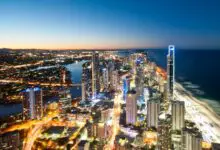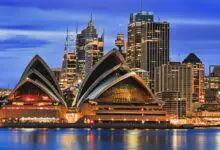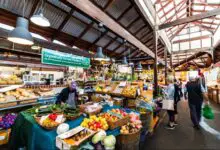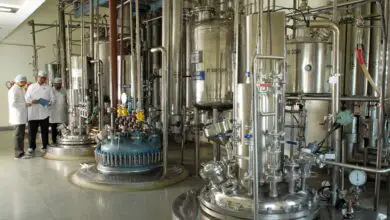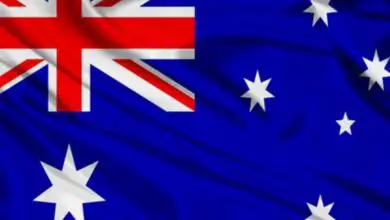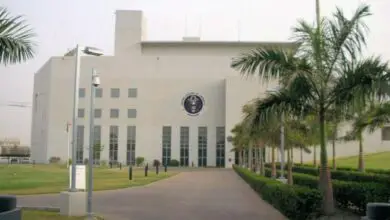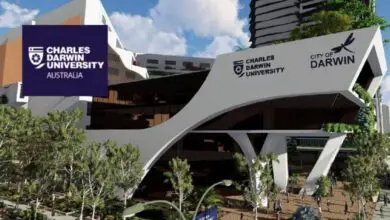Living in Brisbane – Australia as a Master’s Student
Master's programs are available in Brisbane, Australia.
The opportunity to enroll in top-ranked universities that prioritize innovative research in education, complex and interdisciplinary university curricula, and student involvement in teaching and learning are just a few of the reasons why you should choose to study abroad in Brisbane, Australia, where many international students are welcomed each year. In this article, we will take you on the journey of living in Brisbane – Australia as a master’s student.
The start of the academic year varies depending on the university and the type of study you are pursuing in Brisbane, as it does throughout all of Australia. But the majority of institutions begin in February and end in December. Many colleges also provide a second semester or mid-year start.
Life as a Master’s Student in Brisbane – Australia
Over 50,000 international students live in Brisbane, which is known as a “new-world” city. Brisbane is also a well-liked tourist destination and is home to many different ethnic populations. With universities in Brisbane providing over 9,000 courses at the undergraduate and graduate levels, low tuition costs, and excellent recognized programs, it is one of Australia’s most affordable cities to pursue a degree.
The best institutions in Brisbane are renowned for their innovative teaching strategies and forward-thinking approach to learning which guarantees an enriching study abroad experience. Brisbane was named after the Brisbane River, on which it is situated, and is the capital and most populous city of the Australian state of Queensland. It is also the third most populated city in Australia. 13 universities are located in Brisbane, while its population hovers around 2.2 million and an average living cost of 897 – 1,619 EUR/month.
Learn more about housing options
Living and Studying in Brisbane – Australia
Living in Brisbane – Australia as a Master’s Student
You can study diploma programs, Bachelor’s degrees, dual degree programs for the Bachelor, graduate certificates, Master’s degrees, PhDs (Doctorate), and other research diplomas at Brisbane’s universities. There are also programs in wildlife science, journalism, biotechnology, environmental management, design, architecture, computer science, social science, business administration, health economics, or medicine among the many and varied topic areas.
Universities in Brisbane also offers you the opportunity to specialize in any of the following as relatively unusual courses: aviation and aviation management, photonics, personal injury management, screen creation, media studies, special needs education, forensic mental health and business management.
There are numerous MBA programs available, including MBA weekend programs. There are several options available for online (distance learning) degrees, and you also have the choice of frequently visiting the campus (blended studies). Students have access to a campus library with a wide variety of online databases at every university, allowing them to find the most recent information in the disciplines they are interested in.
Career Jobs Available in Brisbane
The main pillars of the economy include Information technology, financial services, higher education, public sector administration, petroleum refining, paper mills, and metallurgy. The Brisbane economy also heavily depends on the tourism industry.
Brisbane is home to multinational companies like: Mincom Limited, TechnologyOne, Thiess Pty Ltd., Virgin Australia, Suncorp-Metway Limited, Flight Centre, Sunsuper, Orrcon, Credit Union Australia, Boeing Australia, Donut King, Wotif.com, WebCentral, PIPE Networks and Krome Studios.
In every industry you might be interested in, there are several internship opportunities available to students at nearby businesses.
The Average Daily Life in Brisbane
Living in Brisbane – Australia as a Master’s Student
Any visitor to Brisbane will be captivated by the abundance of intriguing locations you can either explore or just relax and enjoy. Brisbane offers an exciting and dynamic city life. You also have the opportunity to visit the following cultural institutions: Wickham Park’s Old Windmill, Sir Thomas Brisbane Planetarium, The Wheel of Brisbane, Old Government House and the Parliament Building.
Other important sites include: The Modern Art Gallery of Queensland (GOMA), The Judith Wright Centre of Contemporary Arts and the Brisbane Powerhouse, The Brisbane Powerhouse and the Judith Wright Centre of Contemporary Arts, Maritime Museum and the Queensland Performing Arts Centre (QPAC) – housing a Lyric Theatre, a Concert Hall, Cremorne Theatre and the Playhouse Theatre.
Cultural Events and Activities in Brisbane
Numerous cultural events are organized and conducted in Brisbane, including the river festival, the Ekka (the Royal Queensland Exhibition), the Paniyiri festival at Musgrave Park, an annual Greek cultural festival held over two days in May, and the Brisbane International Film Celebration (BIFF). Over 200,000 people attend the annual Buddha Birthday festival, which is regarded as the biggest in the entire world.
The South Bank Parklands, Roma Street Parkland, the City Botanic Gardens, among other recreational places, are located in Brisbane. One of the most well-known in the world is the Lone Pine Koala Sanctuary. Hot air balloon rides over Brisbane, ferry rides, and exploring Moreton Bay are a few of the interesting things you can do.
Ethnic Composition and Diversity of Brisbane
Due to the high standard of living in Brisbane, huge ethnic populations have also made it their home. The majority of the foreigners who live in Brisbane are from the United Kingdom, New Zealand, and India, making up about 30% of the city’s total population. Chinese, Vietnamese, Cantonese, and Spanish speakers are among the other minorities. Brisbane is the Australian city with the biggest concentration of Taiwanese residents.
In conclusion, Brisbane attracts many foreigners from all over the world due to its wonderful business climate and the numerous trade events and festivals held each year.
Climate and Weather Variation in Brisbane
In Brisbane, severe thunderstorms frequently occur between November and March during the spring and summer. The summer months of December through February typically experience the maximum temperatures, which range from 29 to 30 °C (85 to 86 °F). Summertime humidity levels are high, and overnight temperatures falling below 20 degrees Celsius. The average maximum temperature during the winter season (June to August) is around 20 °C (71 °F).
Click here for information on Australian student visa
See why Australia is best study destination for international students


